Adil Mansure
‘Knowing their ropes’: the intangible heritage and corded epistemes of string figures collected along Melanesian shores
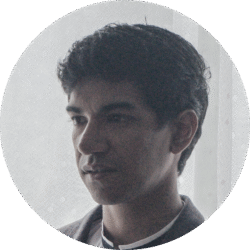
Adil Mansure is a PhD candidate in Architecture at Harvard University. He holds an MPhil in Architecture and Urban Studies from the University of Cambridge, a Post Professional Masters in Architecture from Yale University, and a Bachelor of Architecture from Mumbai University. He has taught at several institutions including Harvard, Cambridge, University of Toronto, and University at Buffalo, and received the H. Allen Brooks Traveling Fellowship from the Society of Architectural Historians. His research interests include indigenous architectural knowledge and the intersection of architecture with intangible cultural heritage. He is the co-editor of Finding San Carlino: Collected Perspectives on Geometries of the Baroque (Routledge, 2019). At the conference, he will present on string figures collected along Melanesian shores in the 1880s by anthropologist A.C. Haddon. His talk will examine how tying and rope-work function as epistemological formats, exploring the significance of these intangible heritage practices in broader histories of maritime technology.
Ingo Heidbrink
European Sailors on American Whalers and Sealers in the Pacific – an overlooked element of European maritime exploration of the Pacific Ocean?
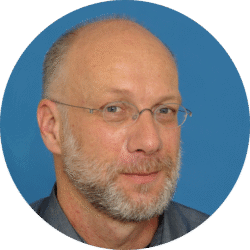
Ingo Heidbrink is Professor of Maritime History and Chair of the Department of History at Old Dominion University in Norfolk, Virginia. He studied Social and Economic History at the Universities of Hamburg and Bremen and worked with several maritime museums in Germany before accepting his professorship at ODU in 2007. He is a specialist on fisheries and whaling history as well as the maritime history of the polar regions, and has published more than 10 books and over 100 articles. He has been a visiting professor at the University of Greenland and fellow at the Rachel Carson Center, the Hanse Institute for Advanced Sciences, and other international maritime history research institutions. He serves as Secretary General of the International Polar Heritage Committee and President of the International Maritime History Association. At the conference, he will present on European sailors who served on American whalers and sealers in the Pacific during the first half of the 19th century. His talk will explore how these European crewmembers indirectly contributed to European knowledge about the Pacific.
Katherine Gazzard
Reframing the Pacific in the Queen’s House, Greenwich
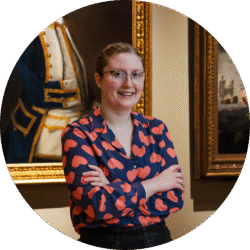
Katherine Gazzard is Curator of Art (Post-1800) at Royal Museums Greenwich. Through her research and curatorial work, she explores the interconnections between British art and the maritime world. She previously taught art history and museum and gallery studies at the University of East Anglia, where she obtained her PhD in 2019. Her doctoral thesis explored the representation of naval officers in eighteenth-century British portraiture. She is the author of The Art of Naval Portraiture, published in March 2024. At the conference, she will present together with Hannah Cusworth on reframing the Pacific in the Queen’s House, Greenwich. Their talk will explore ongoing research into how visitors, particularly members of Pacific communities and the Pacific diaspora, experience William Hodges’s influential paintings from Cook’s second Pacific voyage. The presentation will discuss methodologies for co-curation with Pacific stakeholders to produce new interpretation that offers contemporary perspectives on Hodges’s work and its colonial legacies.
Rebekah Higgitt
Collecting, researching and displaying Pacific exploration, 1750–1850, at National Museums Scotland
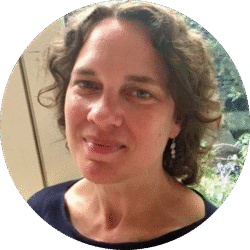
Rebekah Higgitt is Principal Curator of Science at National Museums Scotland, a role she has held since 2020. She completed her PhD at Imperial College London and conducted postdoctoral research at the University of Edinburgh before serving as Curator of History of Science at Royal Museums Greenwich and as a senior lecturer at the University of Kent. Recent publications include The Board of Longitude: Science, Innovation and Empire (Cambridge University Press, 2025), co-authored with Baker, Dunn, Schaffer and Waring, and Metropolitan Science: London Sites and Cultures of Knowledge and Practice, c. 1600-1800 (Bloomsbury, 2024), co-authored with Kilburn-Toppin and Moxham. At the conference, she will present on Pacific exploration collections at National Museums Scotland, examining how objects and specimens reveal networks of collectors. Her talk will also explore recent research that has addressed colonial legacies within the Museum’s collections and sought to represent the perspectives of source communities.
Feliks Gornischeff
Adam Johann von Krusenstern and the Pacific Ocean
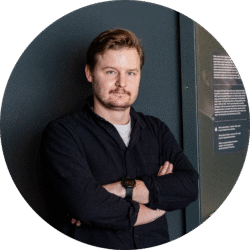
Feliks Gornischeff is a researcher at the Estonian Maritime Museum, where he studies Baltic German exploration in the early nineteenth century. His primary focus is Adam Johann von Krusenstern and his role in the hydrography of the Pacific Ocean. He defended his PhD at the University of Tartu in 2020 on the role of Baltic German diplomats during the Napoleonic Wars. Feliks’s research interests include the service of Baltic Germans in the Russian Empire, international networks of Baltic Germans, and early nineteenth-century maritime and diplomatic history.
Karel Davids
Batavia as a hub in European maritime exploration of the Pacific and South-East Asia, c. 1750–1850
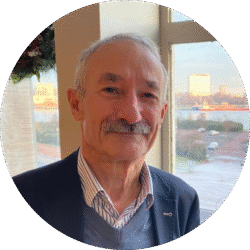
Karel Davids is Professor Emeritus of Economic and Social History at Vrije Universiteit Amsterdam, where he has held a full professorship since 1994. His research areas are global history, history of technology, and the history of relations between humans and animals, from c. 1500 to the present. At the conference, he will present on Batavia as a hub in European maritime exploration of the Pacific and South-East Asia from c. 1750-1850. His talk will examine how Batavia transformed from a storehouse of Dutch East India Company knowledge into a broader hub of European maritime exploration, investigating how this change contributed to European maritime and geographical knowledge, and its impact on Batavia itself.
Sigfrid Socher
“Havia costado tantos sudores y tantas vidas”: A social perspective on the cartographic work of the Spanish military engineer Miguel Costansó during the Portolá expedition (1768–1770)
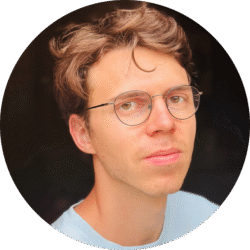
Sigfrid Socher is currently pursuing a French-German Graduate Program in History at Ruprecht-Karls-Universität Heidelberg and École des Hautes Études en Sciences Sociales. He completed his Bachelor of Arts in History and Historical Methodology at Heidelberg University and has studied at Universidad Nacional Autónoma de México and Universidad de Granada. His research focuses on Spanish colonial cartography and military engineering in 18th-century New Spain. He has presented his work at academic conferences including the Jornadas de los Jóvenes Americanistas and contributed to digital history projects. At the conference, he will present on the cartographic work of Spanish military engineer Miguel Costansó during the Portolá expedition exploring California (1768-1770). His talk will analyze the social interactions and challenges involved in mapping the Pacific coastline, examining how Spanish colonial authorities understood Northern Pacific territories in the second half of the eighteenth century.
Sylvia Tongyan Qiu
Adam Johann von Krusenstern and Maritime Transimperial Diplomacy

Sylvia Tongyan Qiu is a PhD student in Art History at the University of California, Los Angeles, specializing in Early Modern European and Chinese Art. She completed her MA in Art History at UCLA in 2023 and earned her BA with First Class Honors from University College London in 2021. Her research focuses on the intersection of early modern globalization and the visual and material culture of the Qing court, particularly Jesuit interventions in astronomy and the transmission of knowledge between Eurasian courts. She has received numerous fellowships from UCLA and presented her work at conferences across Europe, Asia, and North America. At the conference, she will examine Krusenstern’s 1805 arrival in Canton and how his maritime expertise influenced diplomatic encounters between empires. Her talk will explore how seafaring knowledge shaped transimperial diplomacy during a period when new commercial opportunities were transforming traditional diplomatic practices.
Sünne Juterczenka
The trapped ‘explorer’: Matthew Flinders’ unplanned discoveries on the Isle de France
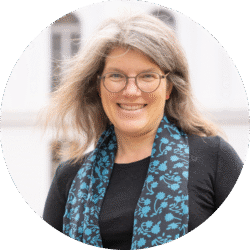
Sünne Juterczenka is Professor of Early Modern History at the University of Greifswald, where she has held the chair since 2023. She completed her habilitation at Humboldt University Berlin in 2021 and has held research fellowships at German Historical Institutes in Washington D.C., London, and Paris. She is co-editor of Saeculum: Jahrbuch für Universalgeschichte and has published extensively on early modern cultural encounters, maritime history, and European expansion. Her recent monograph Expeditionen ins Inselmeer: Zur Rezeption von Pazifikreisen im 18. Jahrhundert (2024) examines the reception of Pacific voyages in eighteenth-century Europe. Her research encompasses cultural contacts and transfers, maritime worlds, travel literature, and the history of knowledge in the early modern period. At the conference, she will present on “The trapped ‘explorer’: Matthew Flinders’ unplanned discoveries on the Isle de France.” Her talk will examine how Flinders’ several-year arrest by the French governor of Mauritius during his homeward journey from Pacific voyages led to unexpected discoveries and knowledge production during his unplanned detention.
Leonie Stevens
“An upright man of war?”: John Henry Cox, the Tasmanians and the Russians
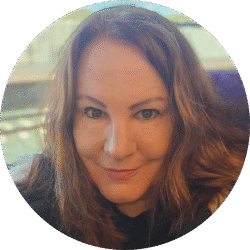
Leonie Stevens is a Research Fellow on the Global Encounters and First Nations People project at Monash University’s Monash Indigenous Studies Centre. She had a previous career as a writer, with six novels and a range of short fiction published. Inspired by the Australian Culture Wars of the early 2000s, she studied history and archaeology and completed a PhD focused on the activism of Tasmanian First Nations Peoples during their exile on Flinders Island in the 1830s and 40s. Her most recent book is ‘Me Write Myself’: The Free Aboriginal Inhabitants of Van Diemen’s Land at Wybalenna. At the conference, she will present on John Henry Cox’s secret deal with Swedish King Gustaf III to raid Russian ships in the North Pacific in the 1790s. Her talk will examine this little-known journey through the lens of narrative history and Indigenous studies methodology, exploring the surprising outcomes including first European encounters with Tasmanian peoples.
Richard Dunn
How to be perfectly correct: Applying new position-fixing methods on British Pacific voyages
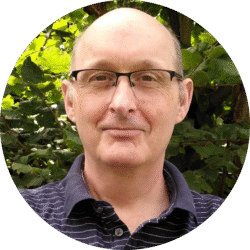
Richard Dunn is Keeper of Technologies and Engineering at the Science Museum, London. He previously worked as Curator of the History of Navigation and then Senior Curator for the History of Science at Royal Museums Greenwich. His publications include Finding Longitude (2014, with Rebekah Higgitt, aslo presenting at this conference), Navigational Instruments (2016) and The Board of Longitude: Science, Innovation and Empire (2025, with Alexi Baker, Rebekah Higgitt, Simon Schaffer and Sophie Waring). At the conference, he will present on new position-fixing methods applied during British Pacific voyages from 1768 onwards. His talk will explore the practices and innovations in longitude-finding that underpinned the surveying accuracy achieved by navigators like Captain James Cook, arguing that these changes in specialist practice represent the most significant outcome of the quest for longitude.
Katherine Parker
Delineating the watery desert: The British production of Pacific geographic knowledge in the long eighteenth century
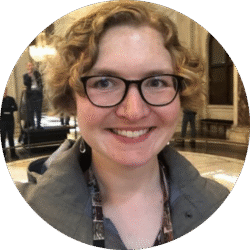
Katherine Parker is Cartographic Collections Manager at the Royal Geographical Society and part-time Lecturer in Architecture at NYU London. She serves as Editor of Imago Mundi: the International Journal for the History of Cartography and Administrative Editor of the Hakluyt Society. She is an intellectual and cultural historian of Pacific exploration and early modern print culture with an emphasis on Britain, working within transnational frameworks that encompass history of the book, cartography, Pacific studies, and imperial history. At the conference, she will present on the British production of Pacific geographic knowledge in the long-eighteenth century. Her talk will explore how the creation of maps, charts, and texts about the Pacific involved conflicts between sailor-authors, geographers, and publishers, examining three case studies including the Dampier-Welbe pamphlet dispute (1707-1712) and debates over Admiral de la Fonte’s findings on North American maps (1750s-1770s). Her presentation will show how discussions about printed materials carried broader implications for personal reputation, navigation safety, and imperial expansion.
Simon Werrett
Care on Voyages of Exploration
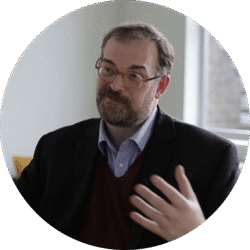
Simon Werrett is Professor of the History of Science in the Department of Science & Technology Studies at University College London, where he has served since 2012 and was promoted to full Professor in 2019. He completed his PhD at Cambridge University in 2000 and held postdoctoral fellowships at the Max Planck Institute for the History of Science in Berlin and the Getty Research Center in Los Angeles before joining the University of Washington, where he taught from 2002 to 2012. His research spans historical studies, history and philosophy of science, British history, and environmental history. At the conference, he will present “Care on Voyages of Exploration,” examining the first Russian circumnavigation by Adam von Krusenstern and Yuri Lisianskii aboard Neva and Nadezhda (1803-1806). His talk will explore how care functioned as a critical component of exploration voyages, offering a fresh perspective on exploration history that moves beyond traditional narratives of violence to reveal the human connections that sustained these dangerous journeys.
Hannah Cusworth
Reframing the Pacific in the Queen’s House, Greenwich
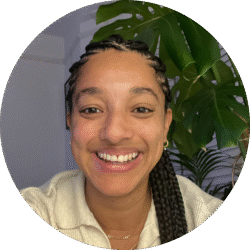
Hannah Cusworth is a Curatorial Fellow at Royal Museums Greenwich, where her focus is on the museum’s colonial collections and their interpretation for visitors. She is completing a PhD at University College London, in collaboration with English Heritage, examining mahogany in eighteenth-century villas within their Atlantic World context. Before working in museums, she was a high school History teacher in southeast London. At the conference, she will present together with Katherine Gazzard on reframing the Pacific in the Queen’s House, Greenwich. Their talk will explore ongoing research into how visitors, particularly members of Pacific communities and the Pacific diaspora, experience William Hodges’s influential paintings from Cook’s second Pacific voyage. The presentation will discuss methodologies for co-curation with Pacific stakeholders to produce new interpretation that offers contemporary perspectives on Hodges’s work and its colonial legacies.
Reetta Sippola
“Here stopped by ice”: Nonhuman traces on Captain Cook´s sea charts, 1778–1779
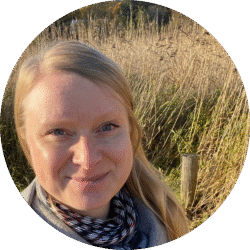
Reetta Sippola is a doctoral candidate in Cultural History at the University of Turku, Finland, specializing in eighteenth and nineteenth-century maritime history. Her PhD thesis examines encounters with more-than-human animals and instruments in early modern maritime travel. Her research interests include knowledge production, maps and weather, history of science, multispecies encounters, material agency, spatial theories, and animal agency. She has published research using digital methods, including work on text re-use in early newspapers and scientific discourse in the Philosophical Transactions. At the conference, she will investigate how ice, wind, currents, temperature and light shaped Captain James Cook’s navigation in the Arctic in 1778-1779, exploring the traces these natural forces left on sea charts produced during the voyage. Her talk positions Cook’s charts not merely as imperial artifacts or representations of geography, but as documents embedded in daily practice and material encounter with Arctic conditions.